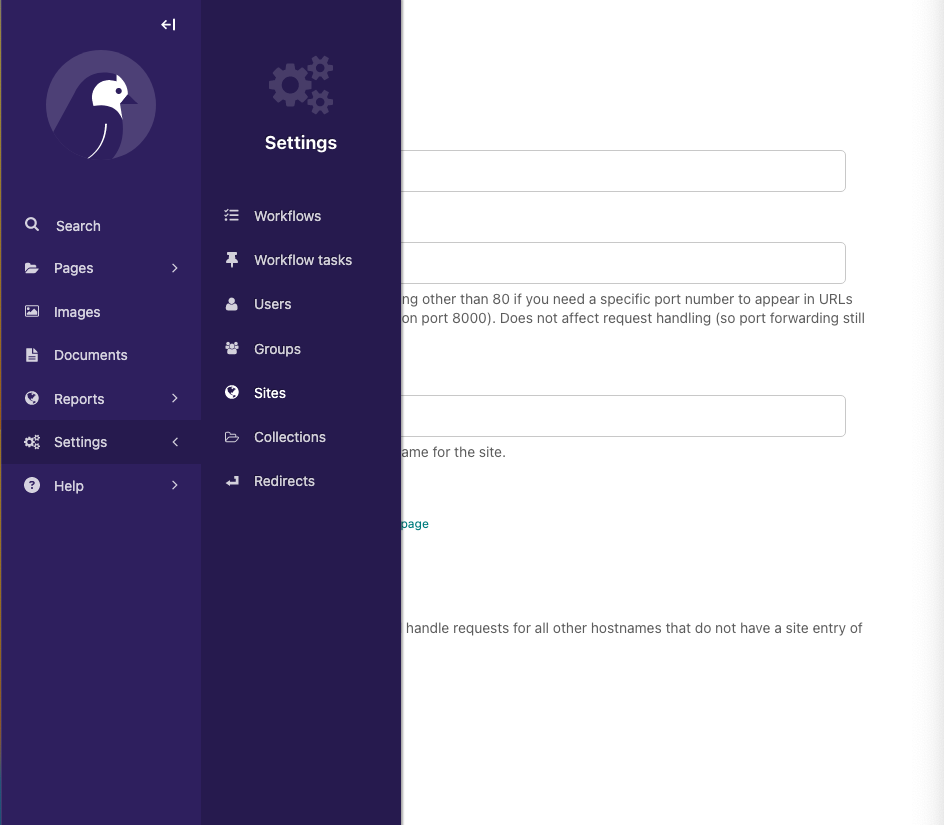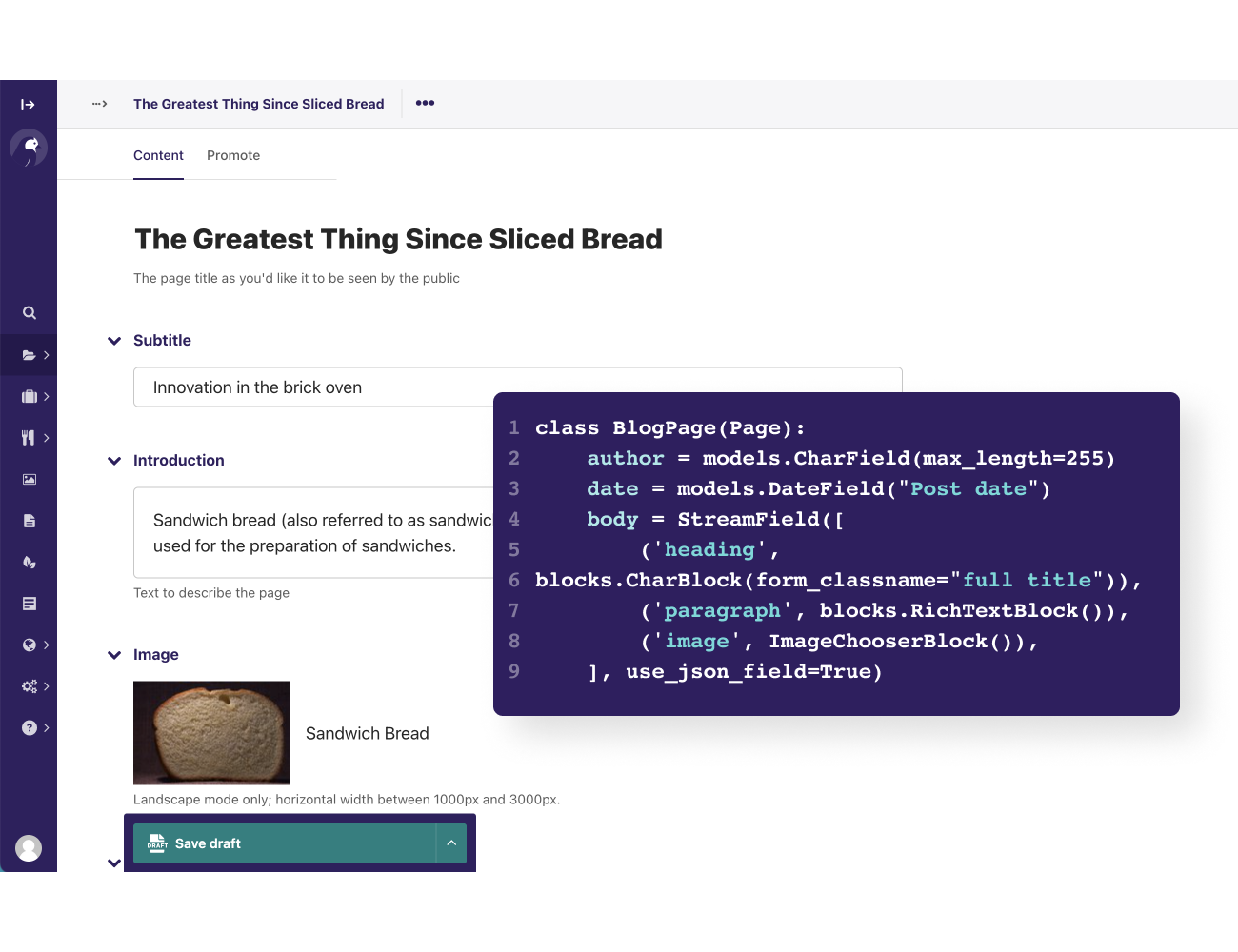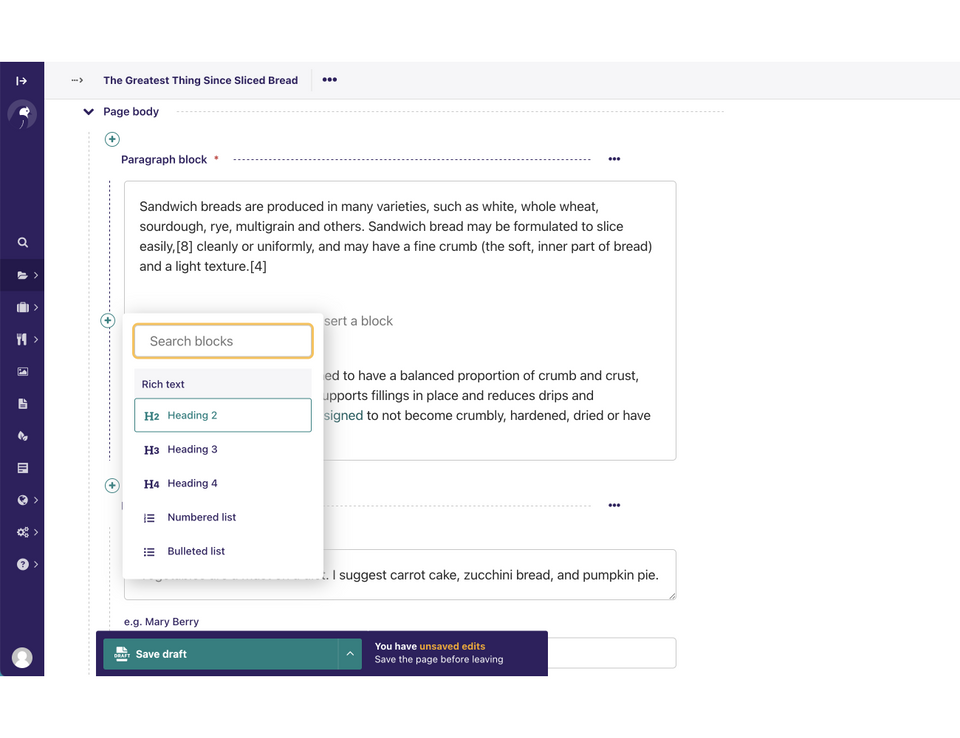Wagtail: The Open Source CMS used By NASA, MIT, Mozilla and NHS
Wagtail: An Outstanding Flexible Python-based Open Source CMS
Wagtail is a free open-source enterprise grade CMS that enables companies to create highly customizable websites in a matter of minutes.
It is used by many big players, including NASA, NHS (UK National Health Service), Google, Mozilla, Red Cross, Salesforce, NBC, BMW and MIT.
The Wagtail CMS includes a powerful dashboard, content types, and a content editor.
It also allows developers to easily add their own content types and custom models.
When it comes to scaling your website, Wagtail can scale to have millions of pages and thousands of editors and users.
Wagtails comes with two dashboards: the CMS admin dashboard and the Django default dashboard.

It features a seamless workflow management system that eases collaboration between writers, editors, and site admins.
Although it does not have
Features
- Simple setup and minimal configuration
- Responsive dashboard
- Support multiple sites on the same install
- Manage the root, parents, and subpages
- Manage documents
- Allows editors to manage their outdated pages
- Supports multiple database engines: SQLite, MySQL, MariaDB, and PostgreSQL.
- Clutter-free content editor
- Customizable page/content types using Django data models
- Wagtail custom form builder: Create forms, surveys, and custom inputs
- Built-in image editor
- Advanced image editor
- Developer-friendly documentation
- Multi-user support with advanced access control lists (Django support)
- Developer-friendly API: suitable for Django and Python beginners
- Fast out of the box, cache-friendly when you need it
- Content API for 'headless' sites with a decoupled front-end
- Runs on a Raspberry Pi or a multi-datacenter cloud platform
- StreamField encourages flexible content without compromising structure
- Powerful, integrated search, using Elasticsearch or PostgreSQL
- Excellent support for images and embedded content
- Multi-site and multi-language ready
- Embraces and extends Django
- You can create multiple sub apps and connect them together easily.
- Manage your URL redirects

Install and run Wagtail
It is pretty straightforward to install and run Wagtail on your local machine, and on your server. The primary requirement is to have Python installed.
Compatibility
Wagtail currently supports:
- Django 3.2.x, 4.0.x and 4.1.x
- Python 3.7, 3.8, 3.9, 3.10 and 3.11
- PostgreSQL, MySQL, and SQLite (with JSON1) as database backends
License
BSD - Free to use and modify for any purpose, including both open and closed-source code.
Resources
- Wagtail GitHub
- Wagtail website

